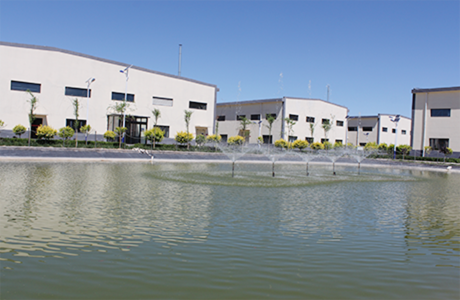- Afrikaans
- Albanian
- Amharic
- Arabic
- Armenian
- Azerbaijani
- Basque
- Belarusian
- Bengali
- Bosnian
- Bulgarian
- Catalan
- Cebuano
- Corsican
- Croatian
- Czech
- Danish
- Dutch
- English
- Esperanto
- Estonian
- Finnish
- French
- Frisian
- Galician
- Georgian
- German
- Greek
- Gujarati
- Haitian Creole
- hausa
- hawaiian
- Hebrew
- Hindi
- Miao
- Hungarian
- Icelandic
- igbo
- Indonesian
- irish
- Italian
- Japanese
- Javanese
- Kannada
- kazakh
- Khmer
- Rwandese
- Korean
- Kurdish
- Kyrgyz
- Lao
- Latin
- Latvian
- Lithuanian
- Luxembourgish
- Macedonian
- Malgashi
- Malay
- Malayalam
- Maltese
- Maori
- Marathi
- Mongolian
- Myanmar
- Nepali
- Norwegian
- Norwegian
- Occitan
- Pashto
- Persian
- Polish
- Portuguese
- Punjabi
- Romanian
- Russian
- Samoan
- Scottish Gaelic
- Serbian
- Sesotho
- Shona
- Sindhi
- Sinhala
- Slovak
- Slovenian
- Somali
- Spanish
- Sundanese
- Swahili
- Swedish
- Tagalog
- Tajik
- Tamil
- Tatar
- Telugu
- Thai
- Turkish
- Turkmen
- Ukrainian
- Urdu
- Uighur
- Uzbek
- Vietnamese
- Welsh
- Bantu
- Yiddish
- Yoruba
- Zulu
7 月 . 25, 2024 11:27 Back to list
Commonly Used Disinfectants in Veterinary Practice for Effective Infection Control and Animal Health
Common Disinfectants Used in Veterinary Practice
In veterinary practice, maintaining a clean and sanitary environment is crucial for the health and well-being of animals, as well as for the safety of staff and clients. Disinfectants play an essential role in infection control, helping to reduce the risk of disease transmission among animals and from animals to humans. This article explores some of the most common disinfectants used in veterinary practice, their effectiveness, and considerations for their application.
One of the most widely used disinfectants is bleach, or sodium hypochlorite. Its broad-spectrum antimicrobial properties make it effective against bacteria, viruses, and fungi. Bleach is especially favored for its ability to deactivate parvovirus, a virus that poses a considerable threat to dogs. However, its corrosive nature can damage surfaces and equipment if not used properly. Veterinarians typically recommend using a diluted solution (usually around 110) for recommended efficacy while reducing potential damage to surfaces.
Another important disinfectant in veterinary practices is quaternary ammonium compounds, commonly referred to as quats. These compounds are favored for their effectiveness against bacteria and enveloped viruses, such as the canine parvovirus. Quats are less corrosive than bleach and can be used on a variety of surfaces, making them a convenient choice for daily cleaning routines. However, it is important to note that their efficacy can be significantly reduced in the presence of organic matter, so thorough cleaning before disinfection is necessary.
Hydrogen peroxide is also widely used as a disinfectant in veterinary settings. It is a powerful oxidizing agent that can kill a broad range of pathogens, including bacteria, viruses, and fungi. Its advantages include being environmentally friendly and breaking down into water and oxygen, leaving no harmful residues. However, hydrogen peroxide can be less effective in organic debris and may cause bleaching or damage to certain materials. It is important for veterinary staff to evaluate the surfaces being treated before using hydrogen peroxide.
common disinfectants used in veterinary practice

Iodine-based disinfectants, such as povidone-iodine, are utilized for their strong antimicrobial properties. These are especially common in surgical settings for pre-operative skin preparation. Iodophors are generally less irritating to tissues compared to pure iodine solutions and have a broad spectrum of antimicrobial action. While effective, care must be taken to avoid staining and tissue irritation in sensitive areas.
In recent years, the use of accelerated hydrogen peroxide (AHP) has gained popularity in veterinary practices. AHP formulations include additional surfactants and stabilizers to enhance their efficacy and reduce surface tensions, thus improving adherence to surfaces. They are effective against a wide range of pathogens, including antibiotic-resistant bacteria and certain viruses. Their rapid action and safety profile make them an appealing choice for veterinary environments.
It is essential for veterinary professionals to choose disinfectants based on the specific pathogens they aim to target, the surfaces they will treat, and safety considerations for their staff and the animals they care for. Proper training in the use of these disinfectants is critical for maximizing their effectiveness and minimizing risks. Furthermore, proper cleaning practices should always precede disinfection to ensure the removal of organic matter, which can interfere with the action of the disinfectants.
In conclusion, the use of disinfectants in veterinary practice is crucial for preventing the spread of infectious diseases and maintaining a safe environment for both animals and human caregivers. By understanding the properties and appropriate applications of common disinfectants like bleach, quaternary ammonium compounds, hydrogen peroxide, iodine-based solutions, and accelerated hydrogen peroxide, veterinary professionals can enhance their infection control measures and promote the health of their patients.
-
The Power of Radix Isatidis Extract for Your Health and Wellness
NewsOct.29,2024
-
Neomycin Sulfate Soluble Powder: A Versatile Solution for Pet Health
NewsOct.29,2024
-
Lincomycin Hydrochloride Soluble Powder – The Essential Solution
NewsOct.29,2024
-
Garamycin Gentamicin Sulfate for Effective Infection Control
NewsOct.29,2024
-
Doxycycline Hyclate Soluble Powder: Your Antibiotic Needs
NewsOct.29,2024
-
Tilmicosin Premix: The Ultimate Solution for Poultry Health
NewsOct.29,2024













